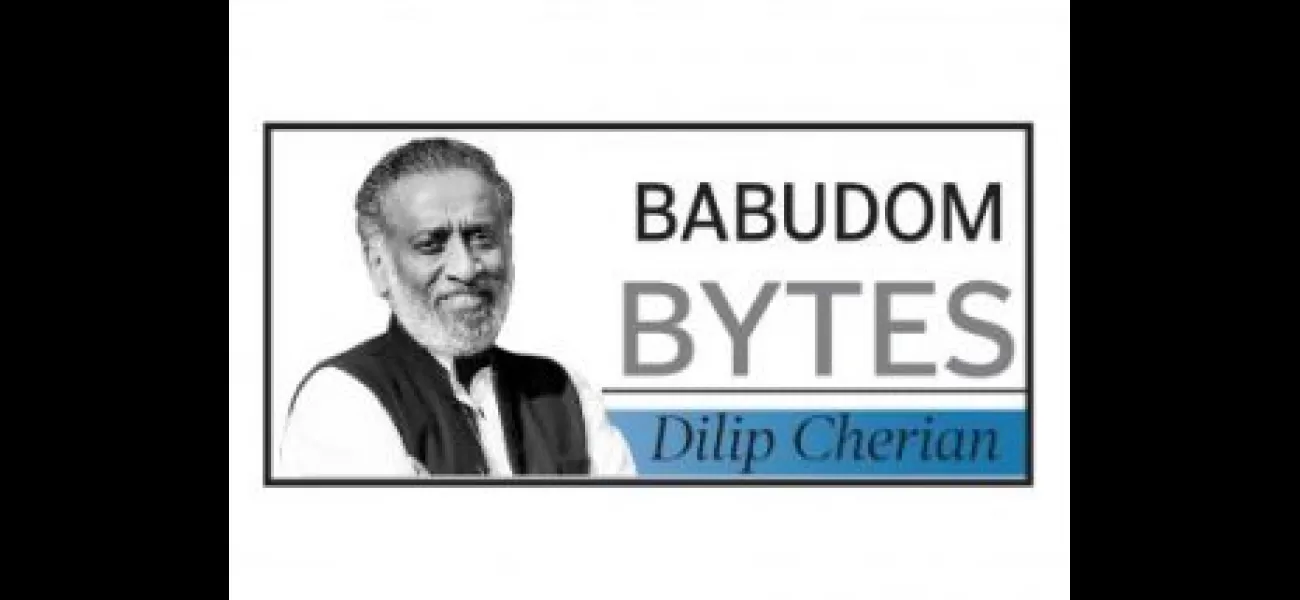This task involves removing something from a larger piece of material or surface.
Preety Sudan has a tough job ahead as she becomes the new UPSC chairperson, replacing the controversial Dr Manoj Soni who resigned unexpectedly. She must work to rebuild the commission's reputation.
August 10th 2024.

Preety Sudan has a big task ahead of her as she takes on the role of UPSC chairperson. This position was previously held by Dr. Manoj Soni, who resigned unexpectedly amidst a lot of controversy. Sudan's primary goal now is to rebuild the commission's credibility. Soni's resignation was due to personal reasons, and it came five years before his term was set to end. This departure coincided with a scandal involving trainee IAS officer Puja Khedkar, who allegedly took the Civil Services Exam 12 times, well beyond the permitted attempts. This incident has severely damaged the UPSC's reputation, and Sudan's leadership will play a crucial role in navigating the aftermath.
Sudan, a retired 1983-batch IAS officer from the Andhra Pradesh cadre, brings a wealth of experience to her new role. She has previously served as the Union Health Secretary during the COVID-19 pandemic, where she played a crucial role in shaping the country's response to one of the most significant health crises in recent history. In 2022, she was appointed as a member of the UPSC, and now she takes on the role of chairperson with the daunting task of steering the commission towards greater transparency and much-needed reforms.
Although Sudan's tenure will only last until March 2025, the expectations are high. The UPSC, once known for its integrity in the Indian bureaucracy, now needs a major cleansing. Sudan's experience, especially her strategic acumen during the pandemic, will be crucial in restoring trust and ensuring that the commission emerges stronger from this crisis.
In a surprise move, the Ministry of Home Affairs has suddenly removed BSF Director General Nitin Agrawal and his deputy, Special DG YB Khurania, and sent them back to their state cadres without any prior notice. Agrawal, from the 1989 Kerala cadre, had only been in his position since last June, and Khurania, a 1990 Odisha cadre officer, was responsible for the BSF's operations along the Pakistan border.
This unexpected move has left many wondering about the reasons behind it. The timing is particularly curious, as Agrawal was still two years away from retirement. Some speculate that this decision may be a response to the recent increase in militant activity in Jammu and Kashmir, a region where the BSF plays a crucial role.
There were already rumors that Khurania may be returning to his home state to take on the role of Director General of Police, but the sudden removal of both officers at the same time has sparked speculation that there may be more to this than just routine transfers. With concerns over border security on the rise, especially with the increase in infiltration incidents, some believe that this shake-up may be a direct response to these challenges.
The government has not provided much information about the reasons behind this move, but it is evident that the situation is complex. As events unfold, we may get a better understanding of what prompted this unexpected change in leadership at the BSF.
President Droupadi Murmu recently appointed new Governors for several states, including Maharashtra, Manipur, Meghalaya, Telangana, Rajasthan, Sikkim, Jharkhand, and Chhattisgarh. The Lt Governors of Puducherry and Chandigarh were also replaced. Among these appointments, the most intriguing one is that of K Kailashnathan, one of Gujarat's most influential bureaucrats, who has been named Lt. Governor of Puducherry.
Kailashnathan, popularly known as KK, has been a prominent figure in the administrative corridors since his retirement as Additional Chief Secretary of Gujarat in 2013. His new appointment as the Lt. Governor of Puducherry highlights his continued importance to Prime Minister Narendra Modi.
KK's administrative journey is marked by his seamless transition from retirement to becoming the Chief Principal Secretary to the Chief Minister of Gujarat, a position created specifically for him. During his tenure, he served under four Chief Ministers - Narendra Modi, Anandiben Patel, Vijay Rupani, and Bhupendra Patel. Despite this, KK has always been seen as a trusted confidant of Modi, acting as a vital link between Ahmedabad and New Delhi.
KK's influence in Gujarat's administrative landscape has been long-lasting, and his latest appointment only reinforces the trust and reliance that the central leadership continues to have in him.
Sudan, a retired 1983-batch IAS officer from the Andhra Pradesh cadre, brings a wealth of experience to her new role. She has previously served as the Union Health Secretary during the COVID-19 pandemic, where she played a crucial role in shaping the country's response to one of the most significant health crises in recent history. In 2022, she was appointed as a member of the UPSC, and now she takes on the role of chairperson with the daunting task of steering the commission towards greater transparency and much-needed reforms.
Although Sudan's tenure will only last until March 2025, the expectations are high. The UPSC, once known for its integrity in the Indian bureaucracy, now needs a major cleansing. Sudan's experience, especially her strategic acumen during the pandemic, will be crucial in restoring trust and ensuring that the commission emerges stronger from this crisis.
In a surprise move, the Ministry of Home Affairs has suddenly removed BSF Director General Nitin Agrawal and his deputy, Special DG YB Khurania, and sent them back to their state cadres without any prior notice. Agrawal, from the 1989 Kerala cadre, had only been in his position since last June, and Khurania, a 1990 Odisha cadre officer, was responsible for the BSF's operations along the Pakistan border.
This unexpected move has left many wondering about the reasons behind it. The timing is particularly curious, as Agrawal was still two years away from retirement. Some speculate that this decision may be a response to the recent increase in militant activity in Jammu and Kashmir, a region where the BSF plays a crucial role.
There were already rumors that Khurania may be returning to his home state to take on the role of Director General of Police, but the sudden removal of both officers at the same time has sparked speculation that there may be more to this than just routine transfers. With concerns over border security on the rise, especially with the increase in infiltration incidents, some believe that this shake-up may be a direct response to these challenges.
The government has not provided much information about the reasons behind this move, but it is evident that the situation is complex. As events unfold, we may get a better understanding of what prompted this unexpected change in leadership at the BSF.
President Droupadi Murmu recently appointed new Governors for several states, including Maharashtra, Manipur, Meghalaya, Telangana, Rajasthan, Sikkim, Jharkhand, and Chhattisgarh. The Lt Governors of Puducherry and Chandigarh were also replaced. Among these appointments, the most intriguing one is that of K Kailashnathan, one of Gujarat's most influential bureaucrats, who has been named Lt. Governor of Puducherry.
Kailashnathan, popularly known as KK, has been a prominent figure in the administrative corridors since his retirement as Additional Chief Secretary of Gujarat in 2013. His new appointment as the Lt. Governor of Puducherry highlights his continued importance to Prime Minister Narendra Modi.
KK's administrative journey is marked by his seamless transition from retirement to becoming the Chief Principal Secretary to the Chief Minister of Gujarat, a position created specifically for him. During his tenure, he served under four Chief Ministers - Narendra Modi, Anandiben Patel, Vijay Rupani, and Bhupendra Patel. Despite this, KK has always been seen as a trusted confidant of Modi, acting as a vital link between Ahmedabad and New Delhi.
KK's influence in Gujarat's administrative landscape has been long-lasting, and his latest appointment only reinforces the trust and reliance that the central leadership continues to have in him.
[This article has been trending online recently and has been generated with AI. Your feed is customized.]
[Generative AI is experimental.]
0
0
Submit Comment





